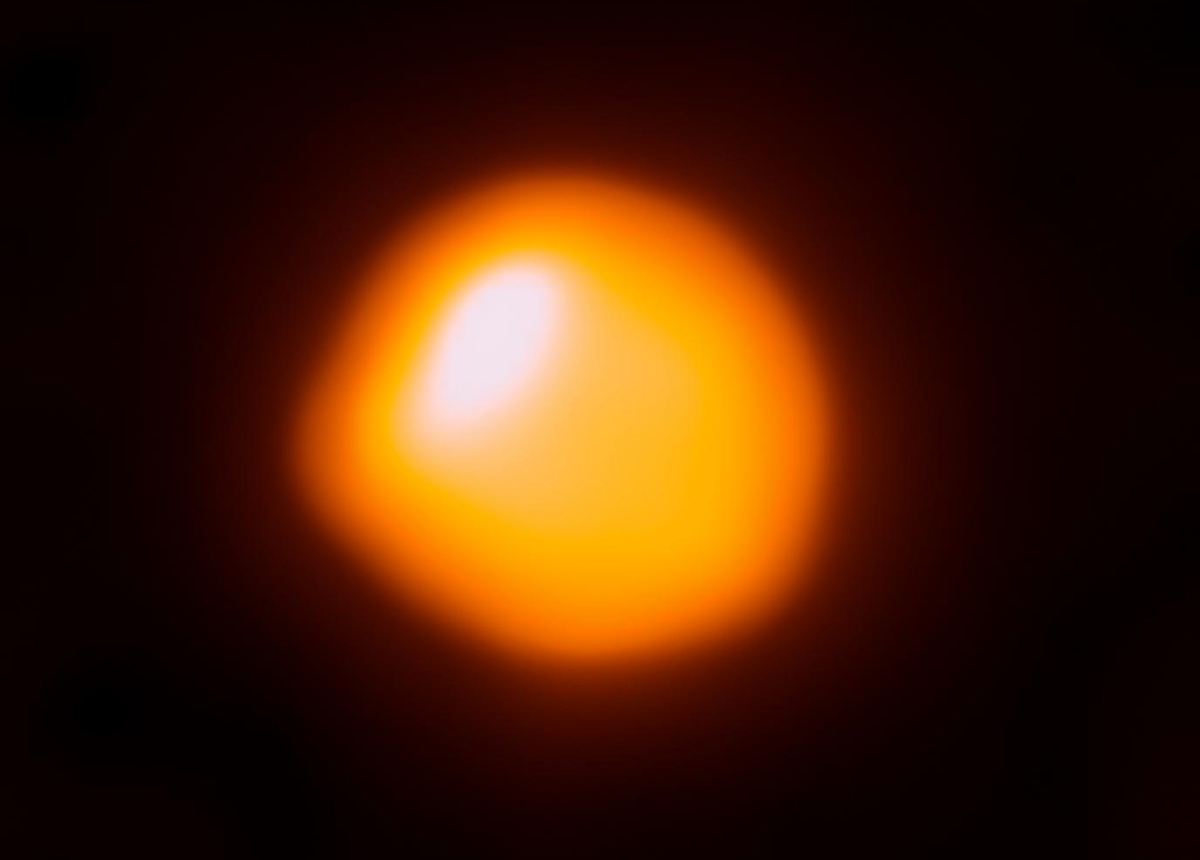Betelgeuse, one of the brightest stars visible from Earth, is expected to briefly disappear on Monday in a historic “once-in-a-lifetime” event, astronomers say.
Skywatchers living in a narrow part of southern Europe and across the Atlantic Ocean into the Bahamas, southern Florida and part of Mexico can see Betelgeuse grow fainter and almost disappear for about 7 to 12 seconds as asteroid Leona passes in front of the famous star.
While the asteroid will block some of the brightest light from the star, it is expected to still leave some to filter through to appear to Earth-based observatories.
Betelgeuse – the 10th brightest star in the sky – has drawn attention in recent years for its fluctuating brightness, sparking concerns that it could be on the brink of explosion.
While later observations revealed that the star is much further from such an end, scientists are still trying to estimate the actual size and other features of Betelgeuse.
The passing of an asteroid in front of a star of this size is very rare visible from Earth only every few decades, researchers say.
Preparations are underway in parts of Europe, including in Italy and Spain to observe this stellar event.
Experts say the rare event would be an opportunity to gain new knowledge about the asteroid and Betelgeuse, such as its size and how charged gas moves around the dying star.
If the weather is favourable on the day, astronomers hope to image the surface of the star and better understand if and how it launches wind into its stellar environment.
Observations will also help determine the size and shape of the asteroid and better understand Betelgeuse’s strangely large convective cells that causes the star to brighten and darken for months at a time.
Studying this may also unravel how material launched from such giant stars end up forming new planets.
The campaign in Italy is led by AstroCampania ETS- l’astronomia amatoriale in Campania, and by Carles Schnabel from the International Occulation Timing Association (Iota) in Spain.
In Cordoba, Spain, the mid-point of the event is expected to be at about 1:15:45 am UTC (2:15:45 am local time) on 12 December, while in Florida, US, the event will peak at about 8:24:54 pm local time on 11 December.
As Betelgeuse is already one of the brightest stars in the sky, observers need only modest equipment to observe the asteroid’s passing, experts say.

Dr. Thomas Hughes is a UK-based scientist and science communicator who makes complex topics accessible to readers. His articles explore breakthroughs in various scientific disciplines, from space exploration to cutting-edge research.








